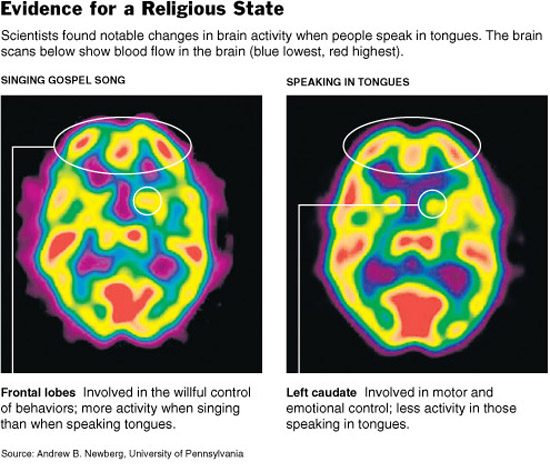The spiritual gift of ‘Speaking in tongues’
What does ‘speaking in tongues’ mean? Paul provides the answer in his first letter to the Corinthians:
1 Cor 13:1 “If I speak with the tongues of men and of angels, but do not have love, I have become a noisy gong or a clanging cymbal.”
The word translated tongues here is glossa (1100). It's meaning includes ‘language’ not just the vocal organ known as the tongue.
This scripture indicates that there are two types of tongues:
1. The tongues of men. These are earthly languages, unlearned by the person speaking, but understood by those listening who can speak that language.
2. The tongues of angels. These are heavenly languages which no earthly person can naturally understand.
Paul shows that tongues are not learned languages when he says:
“For if I pray in a tongue, my spirit prays, but my mind is unfruitful.” 1 Cor 14:14
So, speaking in tongues is the ability of our spirit to communicate in an unlearned language. It is a gift of the Holy Spirit supernaturally provided for the believer. This was demonstrated on the day of Pentecost in Acts 2.
It is also possible to sing with the spirit which, by implication, is singing in tongues. “I will pray with the spirit and I will pray with the mind also; I will sing with the spirit and I will sing with the mind also.” 1 Cor 14:15
The following brain scan shows that ‘speaking in tongues’ uses different parts of the brain to normal language.

The principal investigator Dr. Andrew Newsberg, (Newsberg 2006) an associate professor of radiology, psychiatry and religious studies, commented, “Our finding of decreased activity in the frontal lobes during the practice of speaking in tongues is fascinating because these subjects truly believe the Spirit of God is moving through them and controlling them to speak. Our brain imaging research shows us that these subjects are not in control of the usual language centers during this activity, which is consistent with their description of a lack of intentional control, while speaking in tongues.”
Speaking in tongues is also different to other prayer and meditation
In earlier studies, Dr Newsberg (Newsberg 2006) looked at what happens in the brains of Buddhist monks meditating and Franciscan nuns praying. These results were very different to the scans when speaking in tongues. Speaking about this he said “Whatever is coming out of their mouth is not what they are purposefully or wilfully trying to do. And that’s in fairly stark contrast to the people who are …… like the Buddhist and Franciscan nuns ….. in prayer, because they are very intensely focused and in those individuals the frontal lobes actually increase activity.”
Speaking in tongues leads to emotional stability
Contrary to what may be a common perception, studies suggest that people who speak in tongues rarely suffer from mental problems. A study (Francis and Robbins 2003) of nearly 1,000 evangelical Christians in England found that those who engaged in the practice were more emotionally stable than those who did not.
Rom 8:6 “The mind controlled by the spirit is life and peace.”
Speaking in tongues is not an ecstatic experience – you are still in control.
Despite being used by a number of English translations of the Bible, the term ‘ecstasy’ is not used in the New Testament to describe speaking in tongues. This term, ‘ecstasy’ has a mystical connotation which is defined in the dictionary as ‘an overpowering emotion sometimes involving temporary loss of consciousness often associated with mysticism’. There is no indication in the New Testament that people who speak in tongues lose control of themselves or become unaware of their surroundings (Acts 2; Acts 10:44-48; Acts 19:1-7). When speaking in tongues you can start and stop at will.
“If anyone speaks in a tongue, it should be by two or at the most three, and each in turn, and one must interpret; but if there is no interpreter, he must keep silent in the church.” 1 Cor 14:27+28
Therefore my brethren, desire earnestly to prophesy, and do not forbid to speak in tongues. But all things must be done properly and in an orderly manner.” 1 Cor 14:39+40
Paul in fact warns that “If the whole church assembles together and all speak in tongues, and ungifted men or unbelievers enter, will they not say that you are mad?” 1 Cor 14:23
The act of speaking in tongues has been shown that it does not require a state of ecstatic or trance nature in order to be spoken. An experiment was conducted in which 12 experienced tongue speakers performed with eyes open and without accompanying kinetic activity (such as trembling or shaking) or any residual disorientation. (Spanos + Hewitt 1979)
The fear of some people when faced with speaking with tongues is that they will feel out of control, be led astray and appear drunk like in Acts!
“And when this sound occurred, the crowd came together, and were bewildered because each one of them was hearing them speak in his own language. They were amazed and astonished, saying, ‘Why, are not all these who are speaking Galileans? And how is it that we each hear them in our own language to which we were born? … we hear them in our own tongues speaking of the mighty deeds of God.’ And they all continued in amazement and great perplexity, saying to one another, ‘What does this mean?’ But others were mocking and saying, ‘they are full of sweet wine’
But Peter, taking his stand with the eleven, raised his voice and declared to them: “Men of Judah and all you who live in Jerusalem, let this be known to you and give heed to my words. For these men are not drunk, as you suppose, for it is only the third hour of the day.”” Acts 2:6-15
1 Cor 14:32+33 says “The spirits of the prophets are subject to the prophets; for God is not a God of confusion but of peace.” When you speak in a tongue, your mouth is in control of the verbalisation and by an act of your will, you can stop at any time you like. You can also go with the flow of the Holy Spirit if you choose to do so. You can get as “drunk in the Spirit” as you choose to be. This appears to be the choice the believers Acts 2 made!
Next
1. What is speaking in tongues?
2. Tongues restores our spiritual order
3. The promise of the Holy Spirit and speaking in tongues
4. Speaking in tongues builds you up inside
5. Tongues is your spirit expressing itself to God
6. Examples of the tongues of men
7. Under construction
8. The public use of speaking in tongues
9. Interpreting tongues
10 Tongues as a sign for unbelievers
The secret of moving in the power of God
The word of knowledge
Media
Please sign the guestbook
Home
